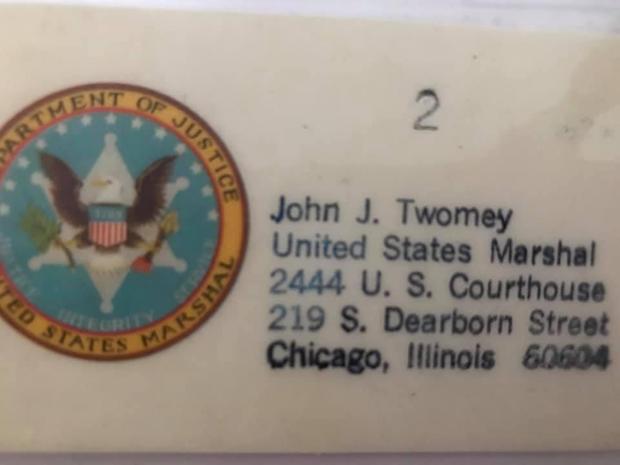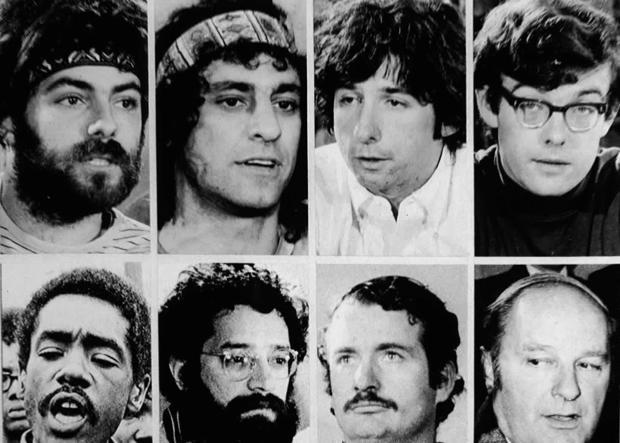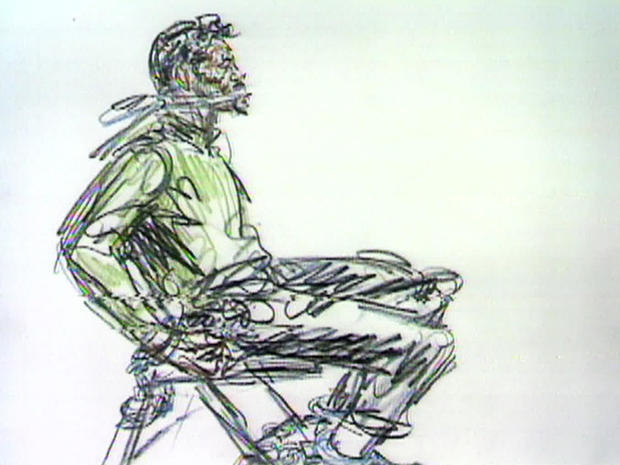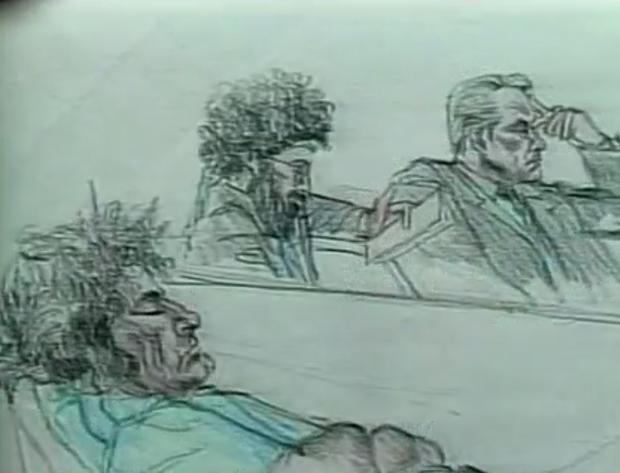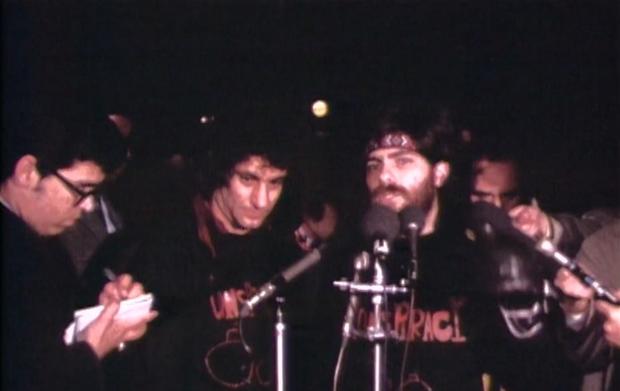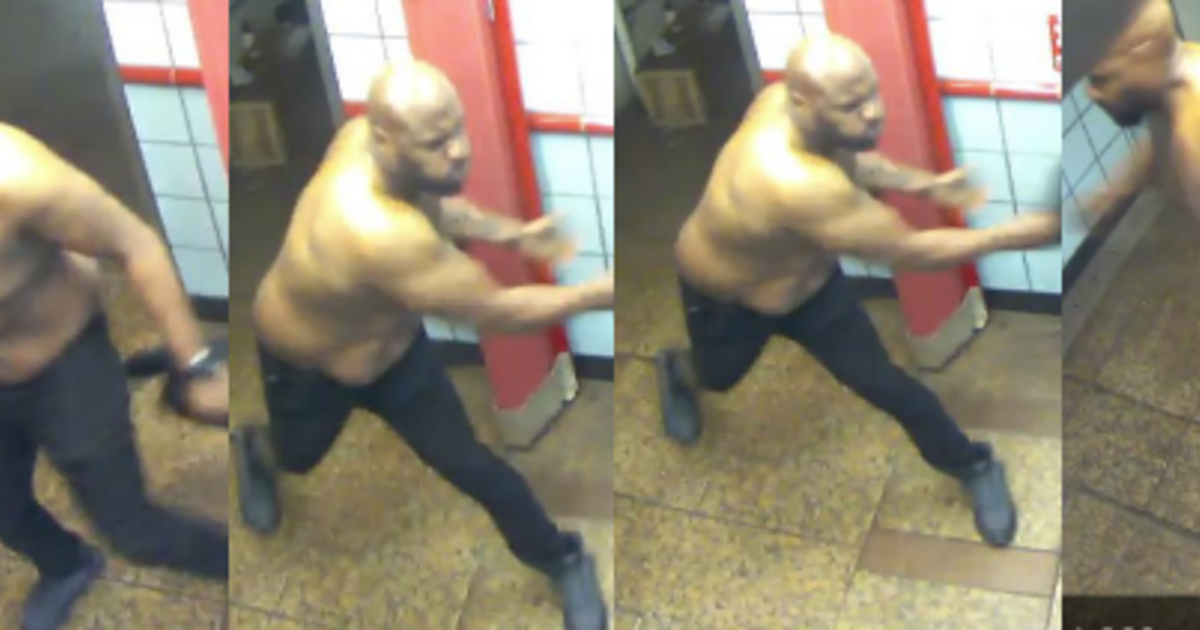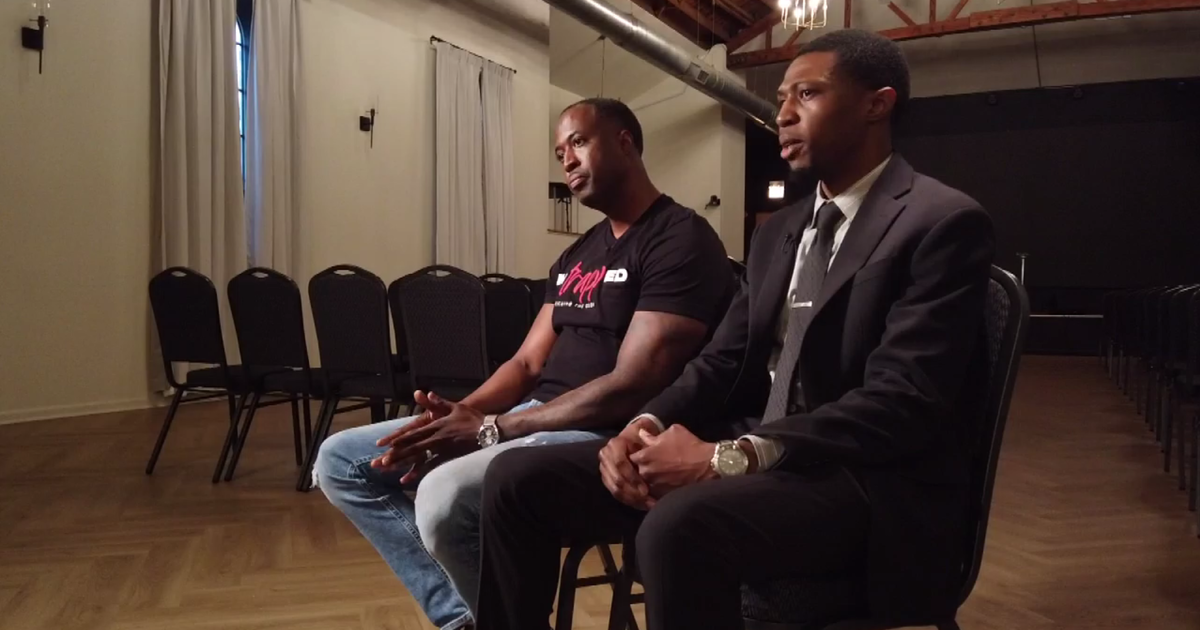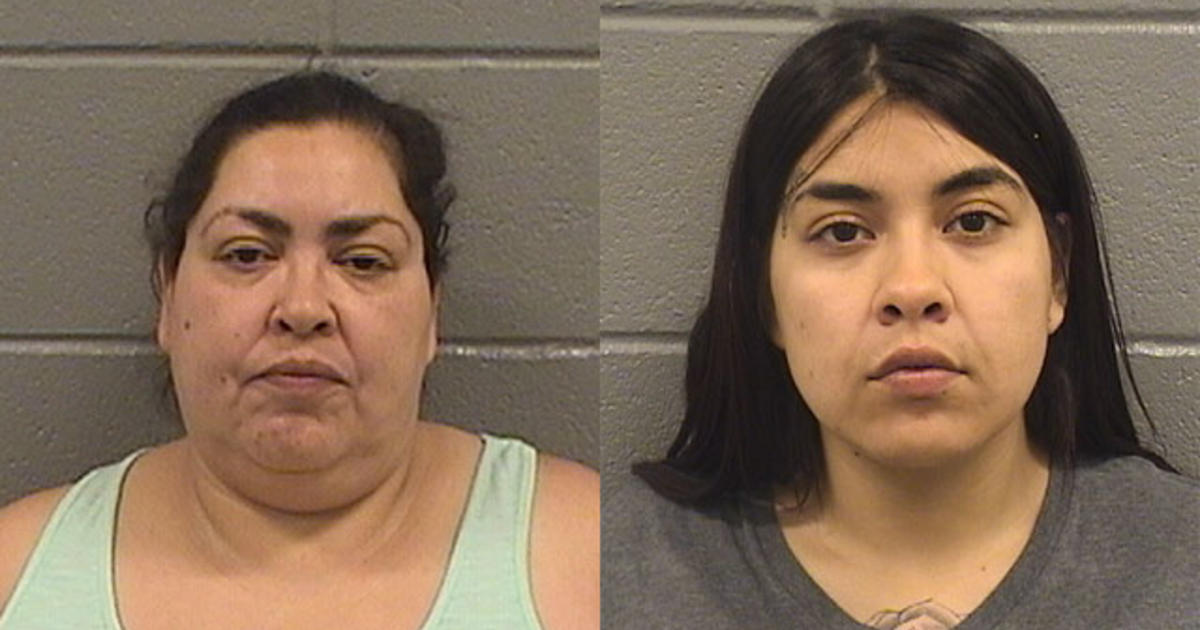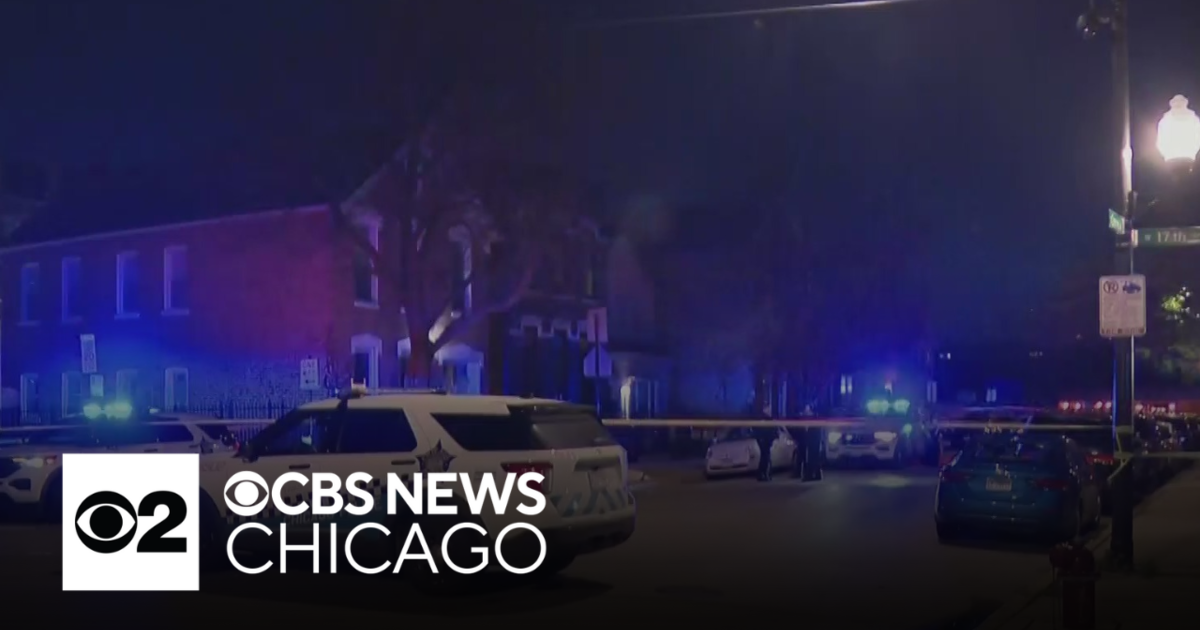'Banality Punctured By Moments Of Sheer Horror:' A Reporter Remembers The Real Trial Of The Chicago 7
CHICAGO (CBS) -- Fifty-one years after it happened, the Trial of the Chicago Seven is top of mind in Chicago and around the country thanks to an eponymous Netflix movie.
Topanga Bird, formerly known as Marti Ahern, was there for the real thing. Bird – who later went on to work as an assignment editor and field producer for CBS 2 – was a 19-year-old desk assistant for the Chicago Sun-Times when she acquired a press credential to cover the trial at the Dirksen Federal Building, beginning in September 1969.
In a recollection provided by email, Bird described the experience of the trial as "banality punctured by moments of sheer horror."
Federal prosecutors had charged eight organizers of the protests during the 1968 Democratic National Convention in Chicago with crossing state lines to incite a riot. The convention, and the protests, took place in August 1968 amid turmoil over civil rights and division over the Vietnam War in America. About 10,000 protesters squared off against about 23,000 police officers and National Guard troops.
The defendants in the federal criminal case initially were Jerry Rubin, Abbie Hoffman, Tom Hayden, Rennie Davis, Bobby Seale, Lee Weiner, John Froines, and David Dellinger. Seale's case was severed and declared a mistrial, and the Chicago Eight became the Chicago Seven.
Five of the defendants – all but Froines and Weiner – were convicted. But eventually, all the convictions were overturned.
The trial went on for five months. As to the experience of having a front-row seat for it all, Bird noted, "One of the most popular drugs of the time was LSD and attending this trial was like taking 'a trip' without ingesting the drug."
Seale was a co-founder of the Black Panther Party. Rubin and Hoffman were part of the Youth International Party, or Yippies, and were known for their mocking theatrics which they brought right to the courtroom. Dellinger, Hayden, and Davis were all involved with the National Mobilization to End the War in Vietnam, and Hayden and Davis were also leaders of the group Students or for a Democratic Society. Bird described activists Froines and Weiner as "outliers" – they were accused of making incendiary devices and were the only defendants to be acquitted.
Bird got to know most of the major players well. As to her own background, she wrote: "I was a product of 'Daley-ville,' an Irish-Catholic teenager living in West Englewood, thoroughly steeped in Democratic party politics. Although well aware of the politics of the day, I couldn't, today, tell you which way my politics leaned. However, I did have a momentary intimate relationship with Abbie Hoffman during the trial so I must have leaned somewhat left of my far right-wing parents."
In addition to her brief personal relationship with Hoffman, Bird also attended Illinois Black Panther Party Chairman Fred Hampton's funeral along with Weiner and Froines.
Dellinger was the oldest of the group – 54 years old when the trial began. Bird described Dellinger as "serious, sober and well aware his was a lost cause in the courtroom. However, he seldom, if ever, engaged in Hoffman and Rubin's pranks and was far removed from his fellow defendants in age and anti-war experience. (He) acted as if he thought he could win this battle on moral grounds, if not in actuality."
Hoffman and Rubin, Bird wrote, were "almost impossible to distinguish one from the other in their 'playing to the audience' demeanor. Hoffman exhibited the typical high/low personality traits of someone with his emotional disorder and Rubin I never could figure out since he seemed much more intelligent and 'clued-in' than he acted. I don't think they ever decided on whether they thought they would win or lose at trial, they were just using it as backdrop."
Hayden, Bird wrote, was a "serious, a born politician, well aware he would use this experience to propel himself forward in whatever it was he considered his public realm." She added that Hayden "really did think he could win this legal battle on constitutional grounds." Davis, she wrote, was a "serious war dissenter" who also believed the defendants could win the case in court.
Bird described Weiner as a "nice guy; polite, intellectual," adding, "Nobody ever did figure out why he was corralled into this scrum." Froines, she wrote, "was also highly committed to the anti-war cause, and was also polite and intellectual."
Seale was already in custody during his brief time in the courtroom, and Bird and the other journalists in court did not get to know him.
RELATED: A Look Back With CBS 2 At The 1968 Democratic National Convention Unrest And The Chicago 7 Trial
In the movie "The Trial of the Chicago 7," U.S. District Judge Julius Hoffman – who was not related to Abbie Hoffman and made sure everyone in the courtroom knew it – was portrayed by actor Frank Langella as stern, authoritarian, and hostile to the defendants. That description lived up to real life and beyond, Bird wrote.
"The judge, who I was led to believe was to be an impartial arbiter, was a character out of some sort of satire, dozing off on the bench, using a hearing aid that audibly whistled so neither he nor those around him could hear the proceedings and berating anyone who would challenge his authority in even the most trivial fashion," she wrote.
Bird added that Judge Hoffman indeed was not an impartial arbiter at the trial, and she characterized the federal court system at the time as being far from apolitical either.
"The behavior of the judge tainted the entire judicial process. His disdain for the defendants, their attorneys and their stated positions on the Vietnam War was palpable. He was rude, partial, inattentive to defense arguments and pleadings. His actions, more than anything else, led to the overturning of the verdict on appeal," she wrote. "However, his bias needs to be placed within its proper milieu – U.S. District Court in that era was about as right-wing, pro-war as any entity existent at the time. As well noted, this was a trial about politics more than law."
Judge Hoffman was particularly hostile to Seale, Bird wrote, "mostly because Seale wouldn't play along." As depicted in the movie, Seale's attorney, Charles Garry, was absent – and Seale himself was vocal about his own lack of legal representation.
Those who were present for the trial, and those who were not, have held up the shackling and gagging of Seale as the most shocking moment of the proceedings. In the opening lines of the 1971 song, "Chicago," Graham Nash sings, "Though your brother's bound and gagged, and they've chained him to a chair, won't you please come to Chicago just to sing."
The shackling is, of course, depicted in "The Trial of the Chicago 7" movie, with Yahya Abdul-Mateen II portraying Seale. But Bird said the depiction "far downplays its violence, and its effect in the courtroom."
"I remember sitting near (future ABC News anchor) Carole Simpson in the press gallery when Seale was restrained. Those of us in first few of rows of spectator benches, mostly reporters, found ourselves scrambling for safety as several marshals struggled with Seale, who fought them as well as he could in restraints," Bird wrote. "The shouting and yelling was terrifying."
Bird also characterized prosecutors Tom Foran and Richard Schultz as hostile to the defense. Of Foran, she wrote: "When he wasn't mocking the defendants, he was verbally battling defense counsel. His lack of respect for the judicial process was astounding."
Schultz, Bird added, "acted like the mean little brother to bruising battler Tom Foran. Both acted if God and Nixon were on their side and they exhibited absolutely no respect for the defendants or their attorneys – and particularly toward their political beliefs."
Foran and Schultz did not go out of their way to interact with the news media, which, Bird wrote, "they appeared to see as favoring the other side."
For his part, Foran, who died in 2000, characterized the trial as a profoundly unpleasant experience and remained strongly critical of the defendants in a 1988 interview with CBS 2.
"The conspiracy trial was like going to the dentist every morning. You know, you'd come up the stairs and there were all these people in the hallway yelling, 'Executioner!' and swearing at you and using filthy language and lying down on the floor so you had to climb over them. It was a pain in the neck," Foran said in the 1988 interview. "You know, they were great lovers of free speech, except they didn't want the United States Attorney to have any freedom of speech. Whenever we'd try to say something, they'd scream and holler and throw things around the courtroom. They wanted to be able to do what they wanted to, but they didn't want anybody else to have any freedom."
Left out of the Netflix movie are an array of celebrity witnesses who were called by the defense. As trial transcripts show, Arlo Guthrie – who was acquainted with Abbie Hoffman and Jerry Rubin – retold the story of and started singing the song "Alice's Restaurant" on the witness stand. Judy Collins started singing Pete Seeger's "Where Have All the Flowers Gone," leading to an admonition from Judge Hoffman, "We don't allow any singing in this Court. I'm sorry." Allen Ginsberg, Timothy Leary, Norman Mailer, and the Rev. Jesse Jackson also testified for the defense, among other household names.
"There were so many famous names of the era parading through that courthouse, either a spectators or witnesses, that it was better than standing on any corner anywhere in Hollywood or Manhattan – both places I have done so over many years," Bird wrote.
Bird also emphasized that at the time of the Chicago Seven Trial, Chicago was "the epicenter of anti-war controversy and violence." In October 1969, while the trial was in progress, store windows and parked cars were smashed during the Days of Rage protests – organized by what was then the Weatherman faction of Students for a Democratic Society. While Fred Hampton was not directly involved in the Chicago Seven Trial as depicted in the movie, the police raid that left him and fellow Black Panther Party member Mark Clark dead also happened while the trial was in progress.
"And then there was the anti-war demonstration in the 'Civic Center' plaza (now Daley Plaza) during which some sort of construction worker scaled the Picasso statue, leaving scars that appeared as tears under its eye," Bird wrote. "Did I mention that the entire time was surreal?"
The trial ended in February 1970. The defendants were acquitted of conspiracy, but a jury convicted Davis, Dellinger, Hayden, Abbie Hoffman, and Rubin of intent to riot. They were each sentenced to five years in prison and fined $5,000.
Judge Hoffman also found the defendants and their attorneys, led by William Kunstler, guilty of 175 counts of contempt of court and sentenced them to between two and four years.
But the convictions were overturned in 1972 and most of the contempt charges were also dropped.
RELATED: The Trial Of The Chicago 7: A Look At The Real-Life Journal Of A Juror
Meanwhile, Bird moved on to the late, great City News Bureau after her stint with the Sun-Times and was working on the rewrite desk when Mayor Richard J. Daley passed away in 1976. From 1977 until 1982, Bird was an assignment editor and field producer at CBS 2 – working alongside Bill Kurtis, Walter Jacobson, Harry Porterfield, Don Craig, and other local news legends in the newsroom at our old building on McClurg Court.
She was producing in the field for CBS 2 for such momentous events as the American Airlines Flight 191 crash at O'Hare International Airport in 1979, and the battle for the passage of the Equal Rights Amendment in the Illinois General Assembly.
Bird went on to work as a campaign scheduler for Richard M. Daley in his unsuccessful 1983 campaign for mayor, and then briefly returned to work in television as an assignment editor at ABC 7. After moving on from Chicago, she worked as a reporter for the Phoenix Business Journal and the Los Angeles Business Journal, before changing gears and getting a masters in clinical psychology. She worked as a social worker for the Los Angeles County Department of Children and Family Services until relocating to Ireland in 2018.
As to the Chicago Seven defendants? Hoffman remained involved in activism for the rest of his life, though he went underground for several years after being arrested on charges of selling cocaine in 1973. He committed suicide in 1989.
Rubin changed gears to become a businessman and stockbroker. He was struck and killed by a motorist while crossing the street in Los Angeles in 1994.
Hayden served in the California State Assembly and then the State Senate between 1982 and 2000. He died in 2016.
Dellinger also remained involved in activism, and returned to Chicago at the age of 81 to protest during the 1996 Democratic National Convention. He died in 2004.
Froines, Weiner, Seale, and Davis are all alive. Davis talked with CBS News this month about his experience protesting and being roughed up by police at the 1968 Democratic National Convention. Weiner also spoke for the story on "CBS Sunday Morning."
As for the movie "The Trial of the Chicago 7," it was supposed to have a wide release in theatres, but then COVID-19 hit and Paramount sold the movie to Netflix, which started streaming it this past Friday. The movie moves the action from Ludwig Mies van der Rohe's Dirksen Federal Courthouse to a Beaux Arts courthouse represented in exterior shots by the Newark, New Jersey City Hall, but many scenes were, in fact, shot in Chicago.
Aaron Sorkin wrote and directed the movie. He got involved after having written several versions of the script for the movie over the years. After the 2016 presidential election, Steven Spielberg convinced Sorkin to make and direct "The Trial of the Chicago 7."
